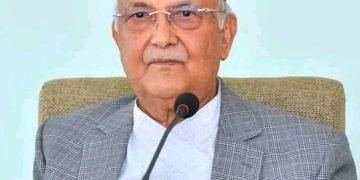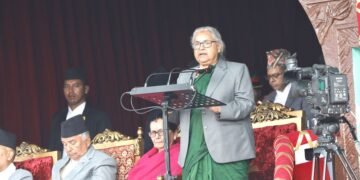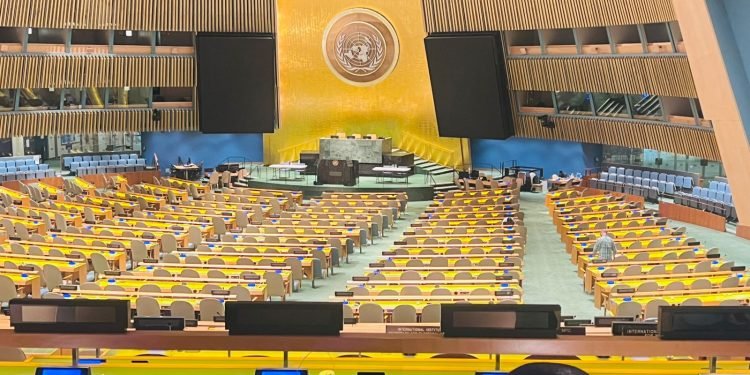The climate crisis is threatening the right to life, the UN human rights chief warned Monday, as a heatwave roasted southern Europe.
Volker Turk hit out at fossil fuel companies, saying they were peddling falsehoods to distract from the damage caused by climate change while they rack up profits.
“The climate crisis is a human rights crisis,” said Turk, the United Nations’ high commissioner for human rights.
“Rising temperatures, rising seas, floods, droughts, and wildfires threaten our rights to life, to health, to a clean, healthy and sustainable environment, and much more,” he told the UN Human Rights Council.
He said the current heatwave in Europe should turn minds towards climate adaptation measures.
Turk said the transition away from fossil fuels has serious implications for human rights, and if mishandled, the rich and powerful would benefit while the poor and vulnerable miss out.
He said current evidence suggested leaders were not taking the required steps to protect people from climate chaos, safeguard their futures, and manage natural resources properly.
Turk said that corporate accountability in the fossil fuels sector was “utterly inadequate”.
“Fossil fuel corporations perpetuate misinformation and disinformation, and peddle false solutions and greenwashing that distract from continued damage,” he said.
The UN rights chief called for measures to make sure that the people and corporations “that have caused and benefited from planetary harm pay for it”.
Turk said that most international financing for climate transition came in the form of loans that increase debt burdens for developing countries.
“Some 3.3 billion people now live in countries that spend more on debt interest payments than on either education or health — with a clear impact on the enjoyment of human rights,” he said.
“In emerging and developing countries, debt interest payments outweigh climate investments.”
Turk said human rights law could actually be a strong lever for climate progress, pointing to recent decisions by international rights courts clarifying the obligations of states to protect the climate and environment.
During the climate change discussion at the Human Rights Council, the president of the UN’s top rights body relaxed the dress code given the heat in Geneva, ditching his tie with temperatures expected to reach 33 degrees Celsius (91 degrees Fahrenheit).





















